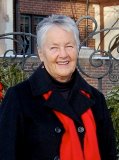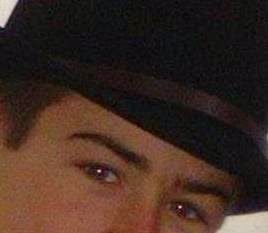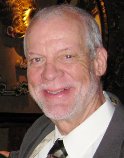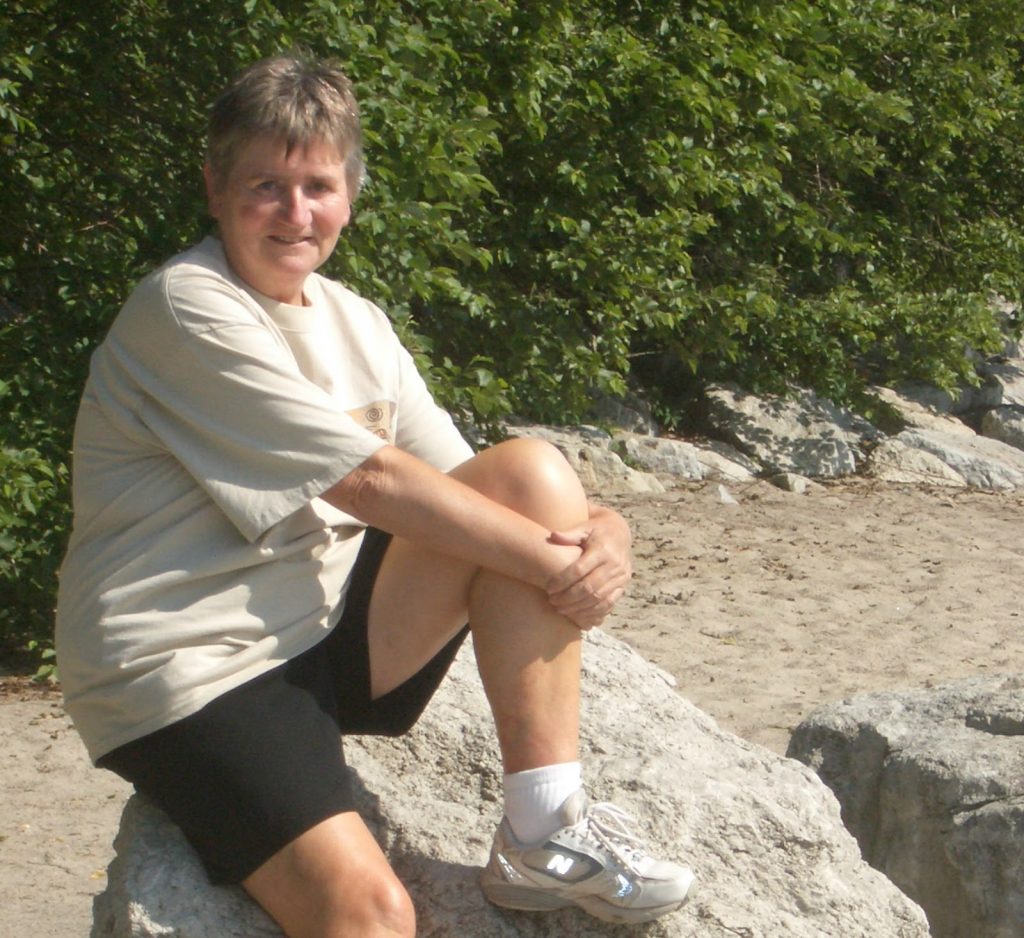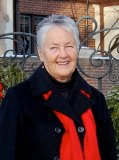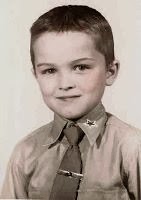First Encounters of a Pornographic Kind by Betsy
the world, the internet has everything and nothing to say about pornography, I
discovered as I was searching for some statistical information. I can say “nothing” because of constantly
encountering the statement that statistics on porn change daily and are
basically meaningless because the numbers are impossible to gather.
page of information a few statements got
my attention; notably, every second that ticks by over $3,000 is spent on
pornography. Mind boggling! And this: the porn industry as a whole in one
year takes in larger revenues than Microsoft, Google, Amazon, e-bay, Yahoo,
Apple and Netflix combined. Even more
mind-boggling!
pornography as an addiction is very prevalent, I learned. But, then, that keeps
the industry flourishing–even in hard times. After reading on a bit further, I still really
had next to nothing to write about pornography.
information on porn history,” I said to myself.
could not help but be drawn to an
ancient picture depicting a “Priapus figure from Pompeii.” The poor guy was shown standing there with a
frontal encumbrance which would be enough to weigh down the strongest of
men. What “jumped out at me” so to speak
is the caption below the picture: In ancient Rome large phali were considered
undesirable for men to possess, it said, and often were depicted as such for
comic effect. Really!! Undesirable!
I don’t believe it for a minute.
But then, what do I know?
Puritan culture. Which reminds me of my
loving Great Aunt Anne. She was an
adorable woman. As I watched her age she
became smaller and smaller until in her 80’s she definitely qualified as a
“little old lady.” This of course made
her even more adorable. She and my Uncle
occasionally took road trips to visit various family members. They would stay in small motels when their
journey required an overnight stay. They
were tight-fisted and they always looked for the small town, family owned motel
off the beaten path. This was in the 1960’s when such places existed.
my house she seemed slightly off center, not really upset, but not quite
herself. Something was on her mind. So I asked her about herself. Was she sure she was all right? With a very embarrassed look about her and
turning her head to check who else might hear what she was about to say, she
revealed that the night before in their motel room, she had had her first
encounter with pornography. She
inadvertently had discovered under their bed piles of magazines–probably 50
magazines. Being curious to read one of
them, she described herself picking one up, opening it, and immediately
releasing it to the floor and kicking it back to its place under the bed. Inside, whispered Aunt Anne, were pictures
depicting “oh the worst pornography you can imagine. Pictures leaving nothing to the imagination,
scenes–well, I could not even look at the pictures!”
time ago, my vision of this little old lady and her first encounter with
pornography will stick in my mind forever.
And truly to this day when the subject of pornography comes up my Aunt
Anne is the first thing that comes to mind.
GLBT community including PFLAG, the Denver women’s chorus, OLOC (Old Lesbians
Organizing for Change). She has been
retired from the Human Services field for about 15 years. Since her retirement, her major activities
include tennis, camping, traveling, teaching skiing as a volunteer instructor
with National Sports Center for the Disabled, and learning. Betsy came out as a lesbian after 25 years of
marriage. She has a close relationship with her three children and enjoys
spending time with her four grandchildren.
Betsy says her greatest and most meaningful enjoyment comes from sharing
her life with her partner of 25 years, Gillian Edwards.
Revelation by Will Stanton
its cover.” This phrase itself is a
hackneyed expression, yet its truth can be applied to many experiences in my
life. There certainly have been instances
where, based upon surface appearances, I arbitrarily have assumed the quality
or interpretation of a person or situation which, subsequently, proved to have
been wrong or misleading. Throughout my
life, I also have tended to give people the benefit of the doubt unless
subsequently proved otherwise. I have
assumed that people are more honest or reliable than they turn out to be, or
more intelligent and better informed than they are. Too often, I have been mislead by those
people’s own inflated egos, their self-assured behavior, or supposed credentials
or positions of authority. I end up
being disappointed when they prove otherwise.
Those repeated revelations should have resulted in early learned
lessons.
misleading, too. Psychological studies
have shown that tall, good looking people are assumed to be more intelligent,
more capable, more successful, and generally happier. I admit to having made that mistaken
assumption, too. We all are aware of any
number of young, good-looking actors, for example, who became very popular and
rich early on, only later to fall prey to some personal calamity such as a
failed adult life of misery, an overdose on drugs or alcohol, dying in terrible
car-crashes, or even committing suicide.
I’m personally familiar with is the tragic case of Ross Carlson whom I met on
the Auraria campus. Ross was especially
handsome nineteen-year-old, very intelligent, and charismatic enough to have
become a teacher’s pet. It was easy to
wish to be as fortunate as Ross. It turned out, however, that Ross was
suffering from multiple personality disorder.
He later shot both his parents and later died suddenly of acute
leukemia. I’m certainly glad that I was
not Ross, despite his exceptionally good looks.
early age, I was extraordinarily sensitive to beauty, and this certainly
pertained to the human face and form. I
clearly recall the spring evening when I was only five years old when my
brother and I joined a couple of young neighbor kids sitting on their
lawn. One boy, only a year older than I,
was physically extraordinary in every way, with his finely formed face, his
sensuous posture, and his graceful movements.
Looking at him, I was fascinated.
I actually felt an electric-like tingle in my stomach. I never really got to know the boy as a
person. The family soon moved away, and
I never saw him again. So, all that I
knew of him was his physical self, only the “cover of the book,” not the real
“contents.” Who knows what he really was
like as a human being or what he may have turned out to be when he grew
up. His outer appearance may have not at
all have reflected who he was or would be.
mine to beauty most likely had some innate factor, yet I also recall a
potential contributing learning-factor as well.
For some reason, I never quite felt accepted or loved as a young
child. This feeling was exacerbated by
my hearing my mother saying, upon seeing one of my neighbor friends or
classmates, “My, he’s a good-looking boy.”
So, I suppose that I learned that, to be accepted, I had to be (quote)
“a good-looking boy.”
preoccupation crept even into some of my dreams. Throughout the years starting in my late
twenties and thirties, I sometimes dreamed of having the appearance I would
like to have, of being years younger, sometimes perhaps back in college. If I felt that, at a dream-age of
twenty-four, I was out of place with the younger students, I’d wake up reminded
of the fact that I was not even twenty four; I actually was was in my
thirties. Perhaps more interestingly, I
often dreamed of being someone else entirely, younger, healthy, athletic, and
good looking, sometimes even of a different nationality. Youth, health, and beautiful outer appearance
always have caught my attention.
tell the whole story. In one
extraordinarily curious dream, I saw myself as around sixteen to eighteen, not
particularly tall but lean and compact, very good looking, and with dark-brown
hair. The peculiar aspect of the dream,
considering that I was in rural Ohio, was that I was trying to appear to be
attractive by dressing as a mock-cowboy.
In addition to bluejeans, cowboy
boots, and black cowboy hat, I also was wearing a linen shirt with an
embroidered cowboy design. In the dream,
I had the distinct emotional feeling that I had dressed in this manner in an
attempt to appear attractive in a young-masculine way. That dream was so vivid and so peculiar that
I remembered every moment of it.
around forty, I traveled back to my hometown to visit my family. They decided to take a long drive out into
the countryside to a state park where there was a scenic hollow with a path leading
to a waterfall. The highway ran through
an economically depressed area with a few tiny, neglected villages and miles of
scrub forest and abandoned coal mines.
The people around there were very poor.
We arrived at the small, empty parking lot by the entrance to the hollow
and gathered ourselves together to begin our nature-walk.
older-model car pulled in. As the lone
driver got out of his car, I cast a glance at him and was very startled by what
I saw. The image presented to me was so
uncanny that I immediately developed a powerful feeling of déja vue. I had seen him before, but only in my dream
some years before. The lone figure was a
youth, at most around eighteen, good looking, and with brown hair. But, what truly stunned me was what he was
wearing. He had attempted, here in the
middle of nowhere in rural Ohio, to make himself look attractive by dressing as
a cowboy with bluejeans, cowboy boots, black cowboy hat, and, most especially,
a linen shirt with an embroidered cowboy design. What were the chances of encountering a
perfect match to what I had dreamed years before? I was amazed.
Then, I felt something
rather disturbing. Everything about this
youth and his old car with the local license plate spoke of rural poverty. Even more poignantly, I sensed in this lone
boy a life most likely of isolation in these poverty-stricken hills, quite
possibly with a dismal future of educational and economic disadvantage. Because of this strange, unexplained
coincidence with my dream, I would have liked to have spoken to him, to find
out who he really was as a person, to discover why he was dressed like
that. Of course, I felt that I could not
do so. I was with my family, and they
would not understand or approve of my talking to this stranger.
would like to look like, that, in fact, I even had dreamed about, a mystery
without an explanation. Yet, that
handsome appearance was only his outer image, the “cover of the book.” If, by some magic, I had been transformed into that person, I might also
have ended up in a life of sadness, disappointment, and hopelessness, trapped
in those depressed hills of rural Ohio.
two deeply ingrained impressions. Ever
since that day, I have been puzzled by the unexplained memory of encountering
the same attractive person, uncannily
dressed in cowboy clothes, as I had seen in my earlier dream. The other was the reminder to avoid envying those individuals
who appear to be especially attractive, for the lives of those individuals may
not be so attractive as their outside promise.
You cannot judge a book by its cover.
January 2014
and their life stories. I also realize
that, although my own life has not brought me particular fame or fortune, I too
have had some noteworthy experiences and, at times, unusual ones. Since I joined this Story Time group, I have
derived pleasure and satisfaction participating in the group. I do put some thought and effort into my
stories, and I hope that you find them interesting.
Teachers by Ricky
yet tender.
host,
looked at those
us.” he began.
creativity.
discussed.”
other positions.
others but,
administrators, staff,
understanding,
Elementary
of those innocents lost to senseless violence.
(adult), Olivia Engel, Josephine Gay, Dylan Hockley, Dawn Lafferty Hochsprung
(adult), Madeleine F. Hsu, Catherine V. Hubbard, Chase Kowalski, Nancy Lanza
(adult), Jesse Lewis, Ana Marques-Greene, James Mattioli, Grace McDonnell, Anne
Marie Murphy (adult), Emillie Parker, Jack Pinto, Noah Pozner, Caroline
Previdi, Jessica Rekos, Avielle Richman, Lauren Rousseau (adult), Mary Sherlach
(Adult), Victoria Soto (Adult), Benjamin Wheeler, Allison N. Wyatt.
Lawndale and then in Redondo Beach. Just
prior to turning 8 years old in 1956, I began living with my grandparents on
their farm in Isanti County, Minnesota for two years during which time my
parents divorced.
in 1958, I lived first at Emerald Bay and then at South Lake Tahoe, California,
graduating from South Tahoe High School in 1966. After three tours of duty with the Air Force,
I moved to Denver, Colorado where I lived with my wife and four children until
her passing away from complications of breast cancer four days after the 9-11-2001
terrorist attack.
therapeutic.
Drifting by Phillip Hoyle
In a very important sense I was drifting through life back then. Oh I had goals in my career and a highly structured schedule, but I was living into the common cultural expectation of marriage with children. I appreciated that my ministerial work afforded me the luxury of reading, researching, teaching, and the like. I easily tolerated the work conditions. In regard to family, I lived with a wonderful woman and by then two very interesting and creative children. I floated my way downstream keeping in the current but letting it move me along well-worn channels.
Then Mike A drifted into my life. He showed up one afternoon at the church where I worked, out on Camp Bowie Boulevard in west Fort Worth, Texas. I didn’t know what he expected, but there he stood looking a little beat down yet clean in cowboy boots, western shirt, Levis, and sporting a tooled leather belt with a big metal buckle that announced in all caps STUD. I was amused as well as concerned. We talked. He wanted help getting his life back together.
I don’t remember if Mike had his equipment with him but he told me he was a welder and needed to get a job. He may have had his welding mask and gloves and probably a suitcase or a box of clothes. He did have a rather pleasant manner and spoke working-class Texan with a distinct twang, drawn-out syllables, and what seemed to me, strange pronunciations. He also had a sense of humor and a charming smile. He was down on his luck but he wasn’t done with life or with living it.
Mike assured me he would be able to get work if he could just get to a particular place to apply. Realizing he’d have to rely on me for a few days, I drove him to a fabrication shop way out in east Fort Worth where he secured a job. Maybe he’d worked there before; I didn’t know. In fact I knew nothing about this world, but Mike did start work at that shop the next day.
Mike knew his trade. While returning to our apartment, he said my car was “arkin’” and asked me to pull into the grocery store and give him a dollar. He’d fix it. I knew there was something draining the power from my car and had wasted quite a bit of money paying mechanics who didn’t repair it. I had no idea what was wrong, nor had I ever heard the word “arkin’.” For 89 cents Mike bought electricians tape and wrapped the places where the insulation had worn off a couple of spark plug wires. He knew the sound of an electric arc; after all he was a welder. And his fix held for many years!
Mike went home with me to my wife and two kids and stayed for a week. I gave him a ride to work and picked him up at the end of his shift—what in the church office I called my paper route. One parishioner overheard the reference and asked the secretary if the church wasn’t paying me enough to live on. That week as we traveled back and forth across the city, I picked up random details about his life, his loss of job, his estrangement from his wife, their two girls who lived with her. I felt like I’d gone down this road before; assisting someone, wondering if my efforts would really help.
Within a week Mike arranged two-way transportation for work. It didn’t occur to me that he was probably back into a network of relationships he had known for years; I was too busy with my life to worry over his details. Mike met church people at our apartment. For him being around educated folk may have seemed odd. One of them perceived Mike’s alcoholism. I knew he drank; she knew of his disease. Her insight made sense of some things I had observed.
One night Mike called me. He had burned his eyes at work—a common hazard for welders. “Could you get some eye drops and bring them to me?” he asked. “Of course,” I answered inquiring just what kind he needed. I drove over to his by-the-week motel, knocked on his door, and administered the eye drops. That’s when Mike gave me one of the most precious gifts I’d ever received. As the sting was abating from his eyes he looked up and said, “I love you, Phillip.”
“I’m happy to help,” was my defended reply to this rather crass, beer-guzzling, Texas cowboy stud. But I was stunned. No man had ever said those words to me, not even in my family.
I knew about love. In college years I had learned to speak words of love to my girlfriend, who became my wife. Actually she taught me how. Saying such words seemed a requirement to get married. I’d said “I love you” many times to her, to my son, to my daughter, and I meant it. A couple of years before Mike drifted into my life I realized that I had fallen in love with a male seminary classmate. I refrained from saying “I love you” to him lest it seem manipulative or, worse, scare him away. Now this drunk said “I love you” to me. I took it to mean he deeply appreciated my help. At the same time I realized I was not interested to explore any further dimensions of its potential with him. My heart was already elsewhere—way too committed to my family and to the one male friend I adored.
I also came to realize my patient and caring help to this man who may have been starved for any kind of love—that along with his lowered threshold of defenses due to his drinking—left him open to say whatever he felt. I received his drifting expression with deep appreciation and realized how much I wanted, even needed to be loved deeply by a man, especially one who might open his non-alcoholic heart to me.
It took twenty more years of maturing for me to do what my heart of hearts desired: to live with a man I loved and who loved me. But I wonder how many more years may have passed if I had not heard those words from my Texas cowboy STUD. His gift to me far exceeded mine to him, and I continue to appreciate that Mike A. had drifted my way.© Denver, 2014
About the Author
Phillip Hoyle lives in Denver and spends his time writing, painting, and socializing. In general he keeps busy with groups of writers and artists. Following thirty-two years in church work and fifteen in a therapeutic massage practice, he now focuses on creating beauty. He volunteers at The Center leading the SAGE program “Telling Your Story.”
He also blogs at artandmorebyphilhoyle.blogspot.com
Believe It or Not, This Really Happened to Me by Lewis
In 1954, when I was eight years old, my family embarked upon the most ambitious vacation of my childhood. All four of us piled into my granddad’s 1952 Packard and headed northeast to Washington, DC; Lynn, Massachusetts; New London, Connecticut; and New York City. The sights and delights of that trip will perhaps be the subject of another day but today I begin my story with what happened a few days after we arrived back home that summer.
About the Author
I came to the beautiful state of Colorado out of my native Kansas by way of Michigan, the state where I married and I came to the beautiful state of Colorado out of my native Kansas by way of Michigan, the state where I married and had two children while working as an engineer for the Ford Motor Company. I was married to a wonderful woman for 26 happy years and suddenly realized that life was passing me by. I figured that I should make a change, as our offspring were basically on their own and I wasn’t getting any younger. Luckily, a very attractive and personable man just happened to be crossing my path at that time, so the change-over was both fortuitous and smooth. Soon after, I retired and we moved to Denver, my husband’s home town. He passed away after 13 blissful years together in October of 2012. I am left to find a new path to fulfillment. One possibility is through writing. Thank goodness, the SAGE Creative Writing Group was there to light the way.
Angels by Gillian
Angels apparently abound.
Angel Falls and Angel Island. The Blue Angels, fallen angels, guardian angels, angel cake, angel hair, angel wings, angel dust, angel eyes and angel sharks; the Los Angeles Angels, Angels in the Outfield and Angel on my Shoulder. Hark the Herald Angels Sing. Angels We Have Heard on High. Not to mention innumerable men in Spanish-speaking countries named Angel.
In spite of the word’s popularity, I had a friend who couldn’t even recognize it, though I wouldn’t class it as a very difficult word, and his native language was English. (If you can say that about someone from Minnesota.) He was a devout Lutheran, and seemed to have no difficulty with the word in prayers, or the Bible, or Xmas carols, but he was incapable, apparently, of recognizing it out of context. The famous U.S. navy flight squadron became the Blue Angles, and remained so even after he had been to see one of their displays. There was angle food cake, angle hair pasta, and angle dust. But then, this came from the person who unfailingly called the old Alpenglow motel in Winter Park, now a Best Western by the way, the Al-pen-gull-o. I amused myself one day trying to get him to say angle iron, wondering if it would have become angel iron, but failed to elicit the word at all.
I don’t have a problem recognizing the word, but I’m not too sure I would recognize the real thing. Although, in hind-sight, at least, I’m getting much better. There are many of them (or us) about. I firmly believe that most, possibly all, of us, have a bit of angel somewhere within. The amount varies from person to person, time to time, place to place, and in the eye the beholder. For many fortunate children, like me, parents are at least partly angels. They are our guardian angels, keeping us safe and helping to guide our early ventures in this new world. For many fortunate parents, as they age and the roles begin to reverse, the children become the guardian angels of the parents. For many fortunate adults, again like me, a spouse or life partner provides some glimpses of angel. Often we get a briefer glance at an angel; that friend who uncomplainingly moves in for a month to take care of us after surgery, or that neighbor who never talks to us but who unfailingly keeps our sidewalk shoveled free of snow simply because he sees that for us it is no longer a pain-free activity.
Sometimes it’s a complete stranger. Several years ago I observed an old woman leaving a homeless shelter. A fresh flower lay on the sidewalk, looking as if it had just fallen from someone’s button hole. She tried to pick it up, but it seemed too hard to bend so much, so I swooped in and picked it up. She looked ready to cry, then pure joy glowed in her face when I handed it to her.
“Oh bless you,” she muttered, “I did want that.”
Her shaking fingers held it up in the sunlight.
“All that beauty!” she said.
“And all for nothing”
She will never know it, but she was my angel for that moment, and returns to me as such quite often. I see a beautiful sunset or colorful bird and I hear her voice again,
“All that beauty! And all for nothing.”
Perhaps I too was a momentary angel that day, for her. Perhaps the fact that someone not only did not cross the street to avoid her, but actually acknowledged her existence and for two seconds offered a hand in kindness, meant as much to her as the encounter did for me. I shall never know, and that will never matter.
I used to be a champion Dumpster Diver. You’d be amazed at what perfectly good items end up tossed in the trash. I don’t do it much now; not because of any newfound dignity but because of newfound aches and pains. One morning I surfaced from a promising dumpster to see an old face just surfacing beside me. A possibly homeless, certainly poor, old woman with a sad face which looked about to cry.
“No doughnuts nor nothing.” She leaned back down over the rim, rummaging as far down as she could reach. I gazed hopefully with her, but could see no sign of wrapped food items.
“Monday morning,” she declared knowledgeably, “I can mostly find some breakfast in here.”
She sank dejectedly down on the pavement, again looking close to tears.
“Don’t go away,” I called as I hurried off into the store, “I’ll be right back.”
I bought a dozen assorted doughnuts and rushed back out.
Another old face lit up. She thanked me profusely and set about stuffing the things into her mouth.
She was, and is, among my angels. She reminds me of my extreme good fortune in this world, that I can go dumpster diving for fun whereas she, and all those many like her, do it out of necessity.
I doubt most, if any, of my angels, dream they are so important to me, a person who, to many of them, is a complete stranger; someone they have probably completely forgotten. In the same way, I don’t know if I have ever been, or am, anyone’s angel. Only one person has ever actually told me I was an angel, and that was my oldest step-son. He was, as usual, deep down in a Bourbon bottle at the time, so I should probably not let it make me too proud of my inner angel.
But I do believe I have one. I believe everyone in this room has one. In fact, someone in this room might be an angel to someone else in this room. We can become an angel to someone at any moment anywhere, and we can find our own angels any moment anywhere.
All we have to do is open our hearts and spirits, and receive with joy whatever comes.
© 15 December 2014
About the Author
I was born and raised in England. After graduation from college there, I moved to the U.S. and, having discovered Colorado, never left. I have lived in the Denver-Boulder area since 1965, working for 30 years at IBM. I married, raised four stepchildren, then got divorced after finally, in my forties, accepting myself as a lesbian. I have now been with my wonderful partner Betsy for 25 years.
Acting by Betsy
One interpretation of this quotation from As You Like It by William Shakespeare, albeit taken out of the context of the play itself, is that the only difference between acting on stage and life itself is that on the stage an actor plays many different roles attempting to portray another individual, other than himself, and this is a professional endeavor. In life we play many different roles expressing who we ourselves are–not who someone else is.
One can be many things at one time or the roles can change. Daughter, son, sister, bother, wife, husband, mother, father, executive, homemaker, social butterfly, recluse, quiet, boisterous, studious etc, etc. Most of us do act according to the role that has been assigned to us and/or the role that we choose. The roles for us early in life are written largely by our culture and the environment which molds us.
As adults other circumstances have an impact on how we play our roles. For example, one can find himself in a particular profession or job in which he/she is expected to drive a certain car, wear certain clothes–necktie, high heels. In this case often the individual must act the part if he wants to be successful and accepted in his profession or to keep his job.
Hopefully most of us act our roles honestly and with integrity; that is, we are acting but at the same time being true to ourselves. Most of us in the GLBT community know quite a bit about acting. As for me, once I convinced myself that I had done nothing wrong and that I simply wanted to act the person that I am–that is, that I wanted to be honest and live with integrity–once I understood that, it was not difficult to play the role. What’s more it felt oh so good and so easy and natural. Instead of acting the part of the person I was not.
New meaning is given to the word “acting” when we apply the connotation of “taking action.” There’s “pro-acting and re-acting.” Again, those of us in the LGBT community are very familiar with the concept of taking action when we decided to be true to ourselves in our lifestyles. This is not always easy to do and often takes a great deal of courage.
In general I think most of us are reactive most of the time. Proaction comes when things are not going so well. Hopefully proaction is taken based on the correct information. When the word on the street is that everything is just fine when it really isn’t, one must determine how things really are. Then take action.
© 19 March 2012
Betsy has been active in the GLBT community including PFLAG, the Denver women’s chorus, OLOC (Old Lesbians Organizing for Change). She has been retired from the Human Services field for about 15 years. Since her retirement, her major activities include tennis, camping, traveling, teaching skiing as a volunteer instructor with National Sports Center for the Disabled, and learning. Betsy came out as a lesbian after 25 years of marriage. She has a close relationship with her three children and enjoys spending time with her four grandchildren. Betsy says her greatest and most meaningful enjoyment comes from sharing her life with her partner of 25 years, Gillian Edwards.
Wisdom by Will Stanton
We selected this topic “Wisdom” two months ago, and I’ve been stymied the whole time since as to what to say. I considered saying simply, “I don’t have it,” but, that comment would not explain much to the listener. So, I’ve put a bit more thinking into the topic and finally realized the reason for my roadblock. I am not wise.
How can I say that? Understanding my response first requires understanding what wisdom is. Wisdom consists of two essential parts. The first is the ability to think, that is, to have good critical thinking skills based upon a solid base-core of knowledge resulting from good education, worthwhile experience, clear insight, and understanding.
To some extent, I suppose that I can claim a modicum of good thinking skills. But, perhaps that claim is mostly by default when contrasted with many other people. That possibility exists based upon what I see and hear far too often from many people in positions of power and influence who, despite their egoistical self-perception, are, in fact, bloviating ignoramuses. They confuse ego and delusion for wisdom. To quote Shakespeare from “As You Like It,” “The fool doth think he is wise, but the wise man knows himself to be a fool.”
I must admit that, throughout my life, I often have perceived and understood some things that might have escaped other people’s attention. At times, I have shared my perceptions with thinking people, and they might have thought me wise. I was not; however, for I too often lacked the second criterion that defines true wisdom: action. I may have understood a situation but, unfortunately, did not know how to put that understanding into action.
Wisdom, in Western thought, is considered to be one of four cardinal virtues. To be a true virtue, however, requires one to put perception and understanding into the most worthy and optimal course of action with the highest degree of adequacy. In retrospect, I cannot claim that ability, at least not with any regularity. Being appropriately reactive, or better yet proactive, never seemed to be my strong suit.
Ironically over the years, many clients and friends have felt that I have helped them by imparting words of wisdom to them. A few, thinking me unusually perceptive, even jokingly have called me “wizard.” Of course, it is easier to suggest wise paths for others to follow than to walk them oneself. “Physician, heal thyself.” Without this second part, action, how can one claim to be wise? Without taking optimal action, understanding is of little worth.
Lacking action too often in my life, I cannot claim either wisdom or self-actualization. I finally have come to realize that fact. Socrates said, “The only true wisdom is in knowing that you know nothing.” A few weeks from now, we have another topic, this one “Drifting.” What I have written for that topic pretty well explains my substitution for wisdom. Had I possessed true wisdom, I undoubtedly would have lived my life more fully. So, I’ll end by speaking wise words to others, words that I would have benefited from had I followed them. Quoting Jonathan Swift, “May you live every day of your life.”
About the Author
I have had a life-long fascination with people and their life stories. I also realize that, although my own life has not brought me particular fame or fortune, I too have had some noteworthy experiences and, at times, unusual ones. Since I joined this Story Time group, I have derived pleasure and satisfaction participating in the group. I do put some thought and effort into my stories, and I hope that you find them interesting.
A Meal to Remember or Rather Forget by Ricky
Sometime in the 70’s, around the same time as the gasoline shortages, there was also a drastic price increase in the price of beef. My spouse, Deborah, decided that we needed to stretch our meat budget by using less meat by adding protein “fillers” to recipes that required meat. She saw a billboard advocating the use of peanut butter as a protein substitute. It sounded reasonable to her so she decided to try it out; on me.
Thus, one day when I returned home from a very hot Arizona day “fighting crime”, she already had dinner prepared. She told me of the billboard and the idea it gave her so I was forewarned about the experimental cuisine, but I was also somewhat excited to try it. After I had taken my place at the table, Deborah brought out our meal. There was salad, vegetable, baked potato, and meatloaf. More accurately, peanut butter meatloaf. Five-star cuisine it was not. In fact, the meatloaf was awful.
Until that evening, neither of us knew just how powerful the peanut oil flavor really is. Two tablespoons of peanut butter added to the meatloaf completely overpowered all the spices added to the hamburger and the flavor of the beef itself. The taste of peanuts combined with the texture of ground beef just did not pass the taste test. It was edible, but not desirable. If we would have had children at that point, I’m sure I would have had to arrest my wife for child abuse. Even if I didn’t, the kids may have gone looking for a foster family.
© 31 March 2014
About the Author
I was born in June of 1948 in Los Angeles, living first in Lawndale and then in Redondo Beach. Just prior to turning 8 years old in 1956, I began living with my grandparents on their farm in Isanti County, Minnesota for two years during which time my parents divorced.
When united with my mother and stepfather two years later in 1958, I lived first at Emerald Bay and then at South Lake Tahoe, California, graduating from South Tahoe High School in 1966. After three tours of duty with the Air Force, I moved to Denver, Colorado where I lived with my wife and four children until her passing away from complications of breast cancer four days after the 9-11 terrorist attack.
I came out as a gay man in the summer of 2010. I find writing these memories to be therapeutic.
My story blog is TheTahoeBoy.Blogspot.com
